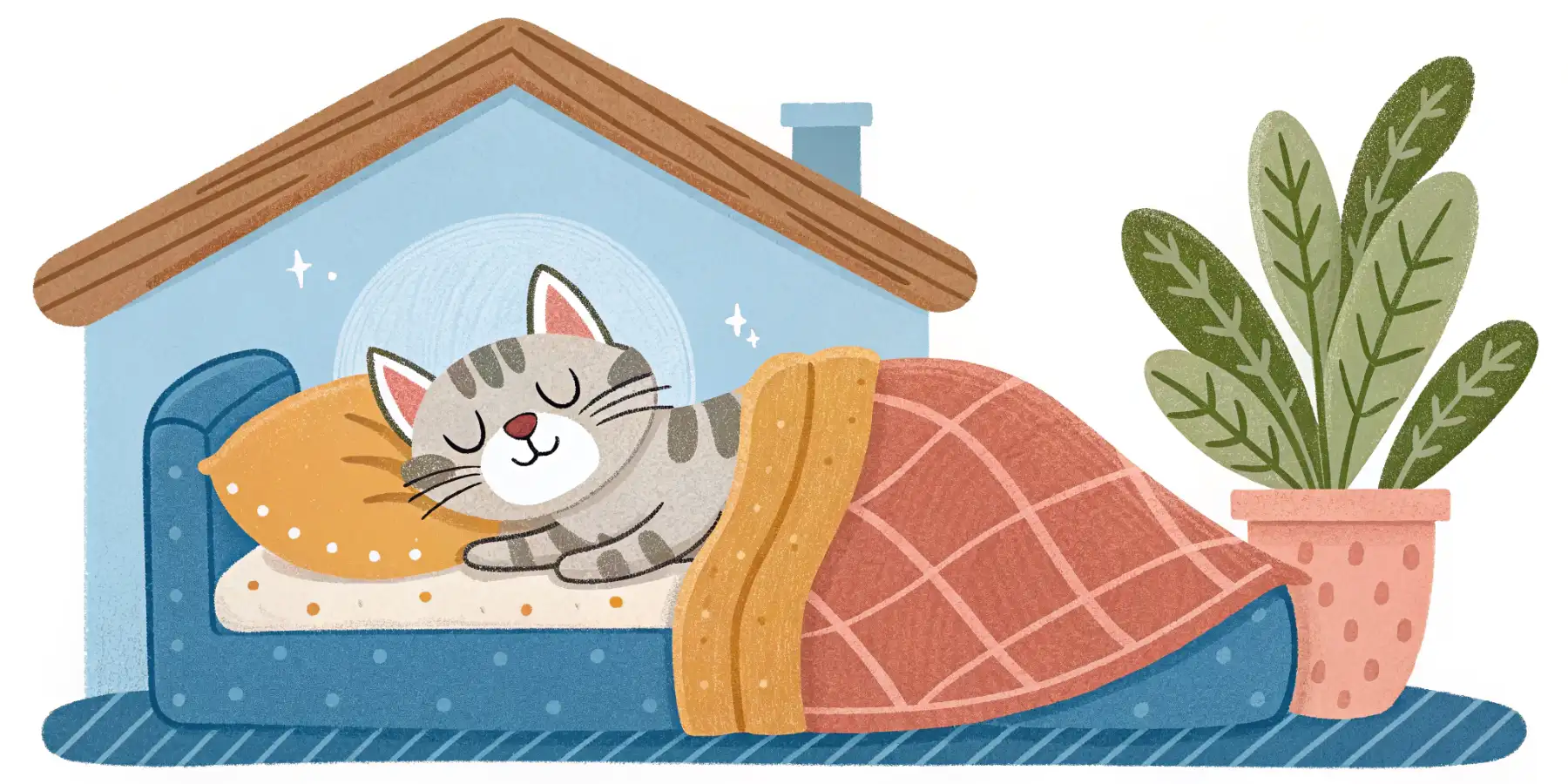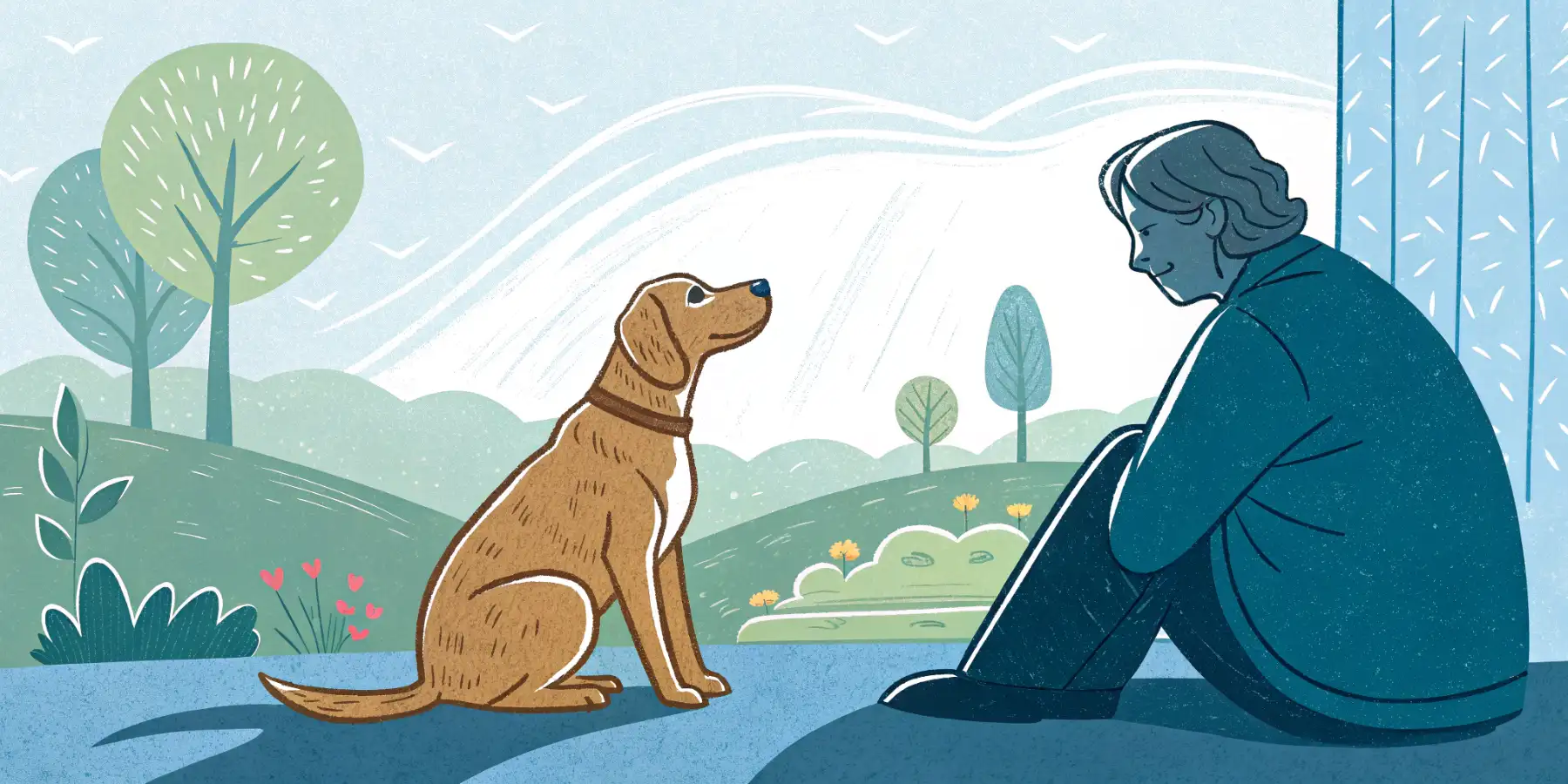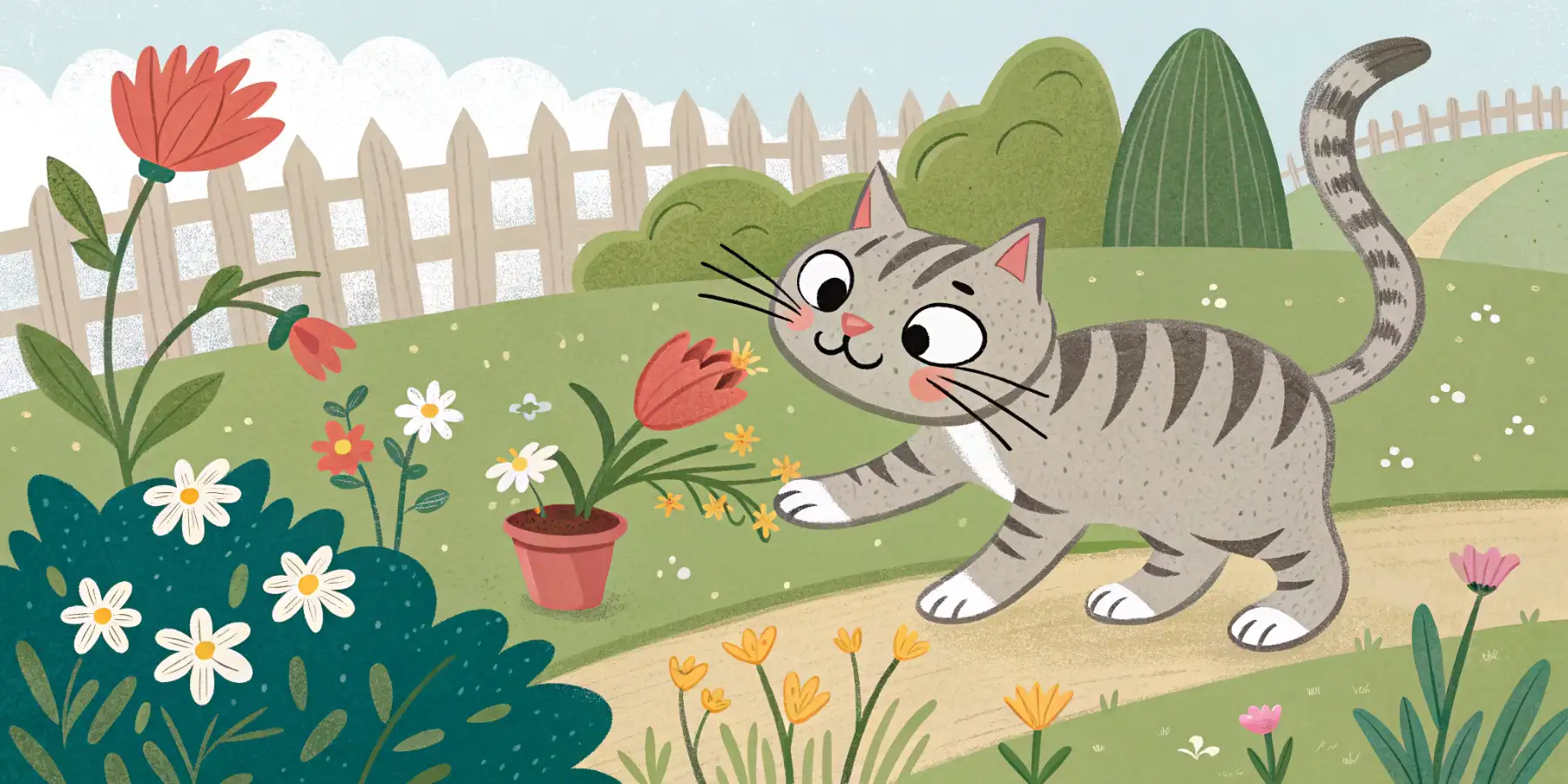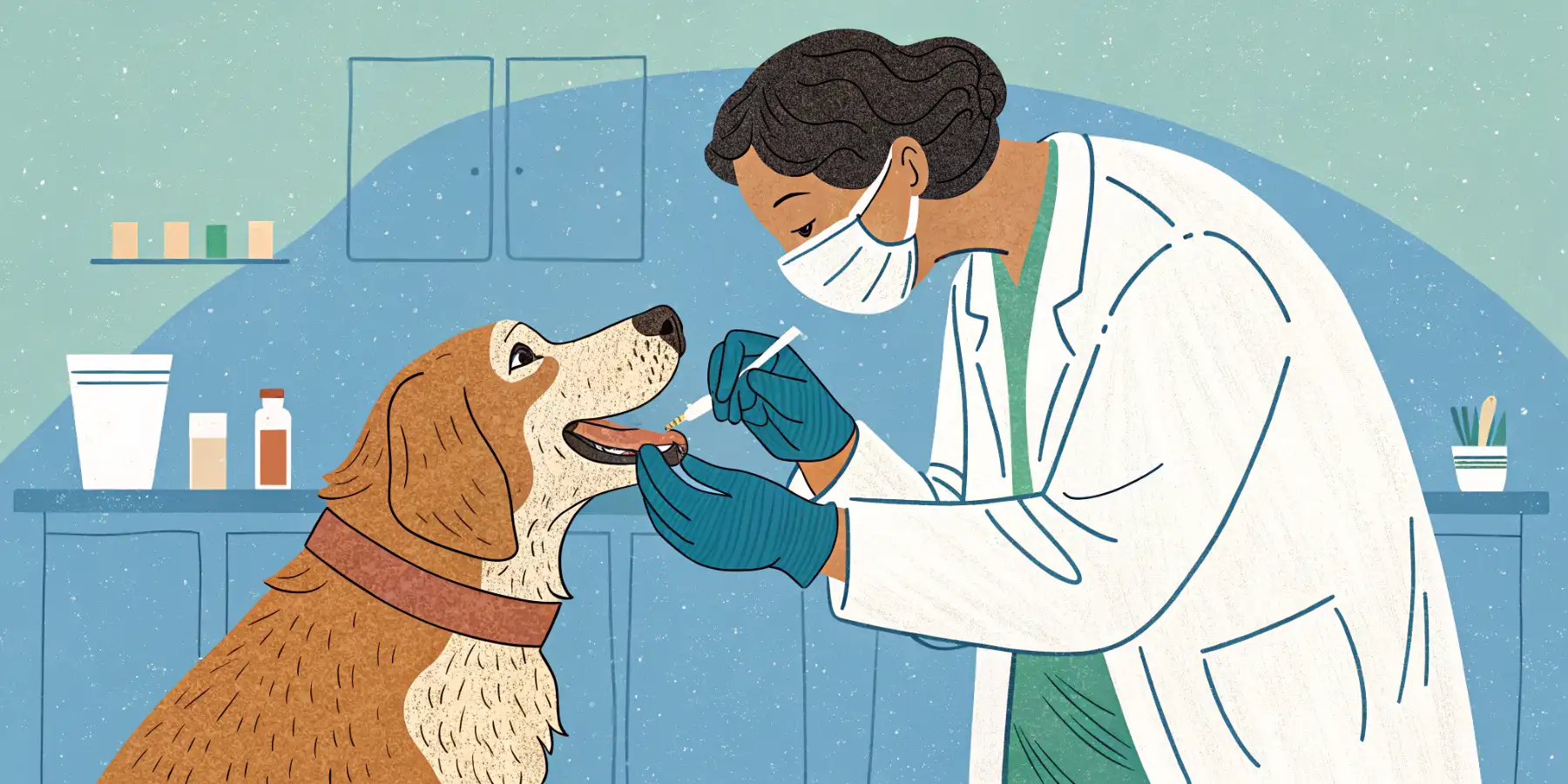
Senior Dog Dental Care: Keeping Smiles Healthy
Senior dog dental care is vital! Learn to adapt & keep your aging pup's smile healthy. Prevent pain & boost their well-being!
Dental Care Challenges in Older Dogs: Importance and Adaptations
As our beloved canine companions enter their golden years, their needs shift, and we, as responsible pet parents, need to adapt our care accordingly. One area that often gets overlooked, but is absolutely crucial for their overall health and well-being, is dental care. Older dogs face unique dental challenges, and understanding these challenges is the first step in ensuring they live long, happy, and pain-free lives.
The Aging Mouth: What Changes Occur?
Just like in humans, the aging process brings about several changes in a dog’s mouth. These changes can make them more susceptible to dental problems. Some of the most common issues include:
- Increased Tartar and Plaque Buildup: Older dogs often have a longer history of plaque and tartar accumulation. This buildup creates a breeding ground for bacteria that can lead to periodontal disease. Think of it as neglecting your own teeth for years – the longer you wait, the more damage occurs!
- Weakened Teeth and Gums: Age can weaken the teeth’s enamel and the supporting structures of the gums. This makes them more prone to fractures, infections, and tooth loss.
- Periodontal Disease: This is by far the most prevalent dental problem in older dogs. It’s an infection that affects the tissues surrounding the teeth, leading to inflammation, bone loss, and eventually, tooth loss. Periodontal disease in senior dogs can also have systemic consequences, affecting the heart, kidneys, and liver.
- Oral Tumors: While less common, oral tumors are more prevalent in older dogs. These can be benign or malignant, and require prompt veterinary attention.
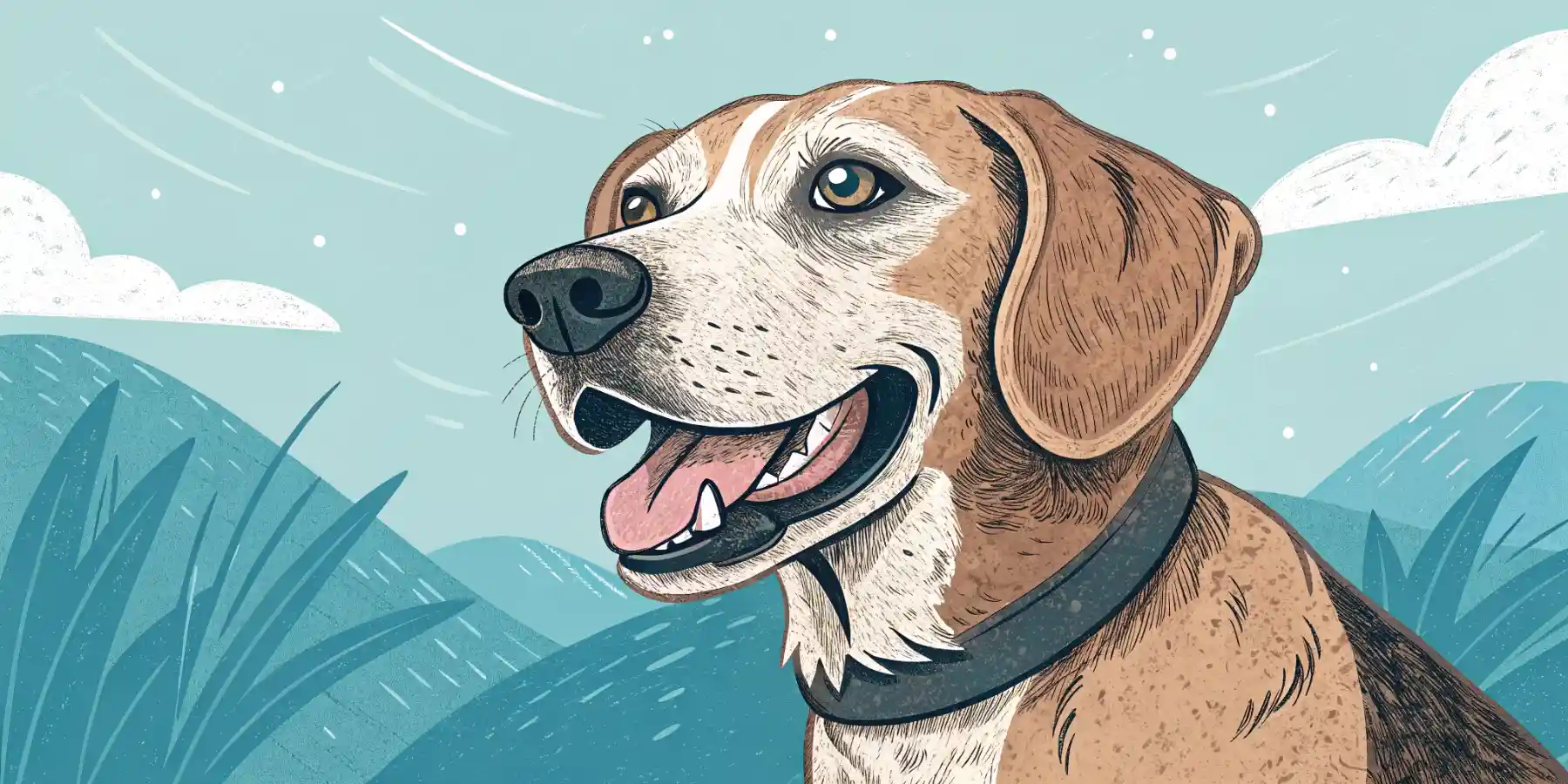 A happy senior dog proudly shows off his pearly whites – a result of consistent dental care.
A happy senior dog proudly shows off his pearly whites – a result of consistent dental care.
Why Dental Care is Even More Important for Senior Dogs
You might be thinking, “My dog’s old; does dental care really matter that much?” The answer is a resounding YES! Here’s why:
- Pain Management: Dental disease is incredibly painful for dogs, even if they don’t show obvious signs of discomfort. Imagine having a constant toothache – it would affect your appetite, sleep, and overall mood. Managing dental pain in older dogs is a top priority.
- Improved Quality of Life: A healthy mouth allows your dog to eat comfortably, enjoy their toys, and interact with you without pain. This significantly improves their quality of life in their senior years.
- Preventing Systemic Illness: As mentioned earlier, periodontal disease can have serious systemic effects. Bacteria from the mouth can enter the bloodstream and damage vital organs. Proper dental care can help prevent these complications.
- Extending Lifespan: By preventing systemic illness and improving overall health, good dental care can potentially extend your dog’s lifespan.
Adapting Your Approach: What Works for Senior Dogs?
Now that we understand the importance of dental care for older dogs, let’s discuss how to adapt your approach to meet their specific needs.
- Regular Veterinary Checkups: This is paramount. Your veterinarian can assess your dog’s oral health, identify any potential problems early on, and recommend appropriate treatment. Schedule annual dental exams for older dogs with your veterinarian.
- Professional Dental Cleanings: Regular professional dental cleanings under anesthesia are essential for removing tartar and plaque buildup. Your veterinarian can determine the appropriate frequency based on your dog’s individual needs. In my experience, many older dogs benefit from more frequent cleanings than younger dogs.
- Gentle Home Dental Care: Brushing your dog’s teeth at home is a crucial part of maintaining their oral health. However, older dogs may have sensitive gums, so it’s essential to use a soft-bristled toothbrush and a dog-specific toothpaste. I believe that consistency is key, even if you can only brush for a minute or two each day.
- Dental Chews and Toys: Certain dental chews and toys can help reduce plaque and tartar buildup. However, it’s important to choose safe and appropriate options for older dogs, as they may have weaker teeth. Avoid hard chews that could fracture their teeth.
- Dietary Considerations: Talk to your veterinarian about whether a special dental diet might be beneficial for your dog. These diets are formulated to help reduce plaque and tartar buildup. Some older dogs may also benefit from softer food if they have difficulty chewing.
- Pain Management Strategies: If your dog has significant dental disease, your veterinarian may recommend pain medication to help manage their discomfort. Never give your dog human pain medication, as it can be toxic.
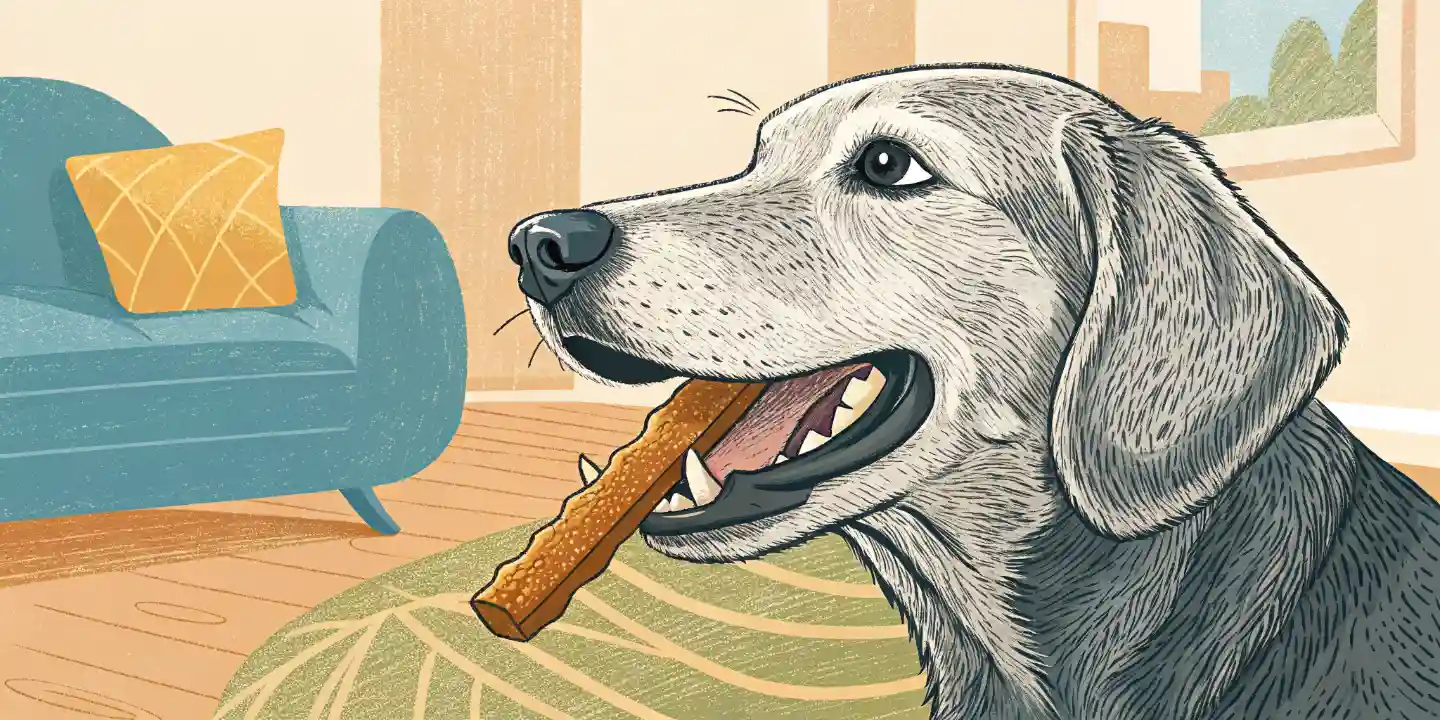 A senior dog happily gnaws on a safe and effective dental chew, contributing to his oral hygiene.
A senior dog happily gnaws on a safe and effective dental chew, contributing to his oral hygiene.
What if My Dog Resists Dental Care?
Some dogs, especially older ones, may resist having their teeth brushed or examined. Here are a few tips to make the process easier:
- Start Slowly: Gradually introduce your dog to the toothbrush and toothpaste. Let them sniff and lick the toothpaste before attempting to brush their teeth.
- Positive Reinforcement: Use positive reinforcement, such as praise and treats, to reward your dog for cooperating.
- Be Gentle: Be gentle and patient, especially if your dog has sensitive gums.
- Consider Alternatives: If your dog absolutely refuses to have their teeth brushed, talk to your veterinarian about alternative options, such as dental wipes or rinses.
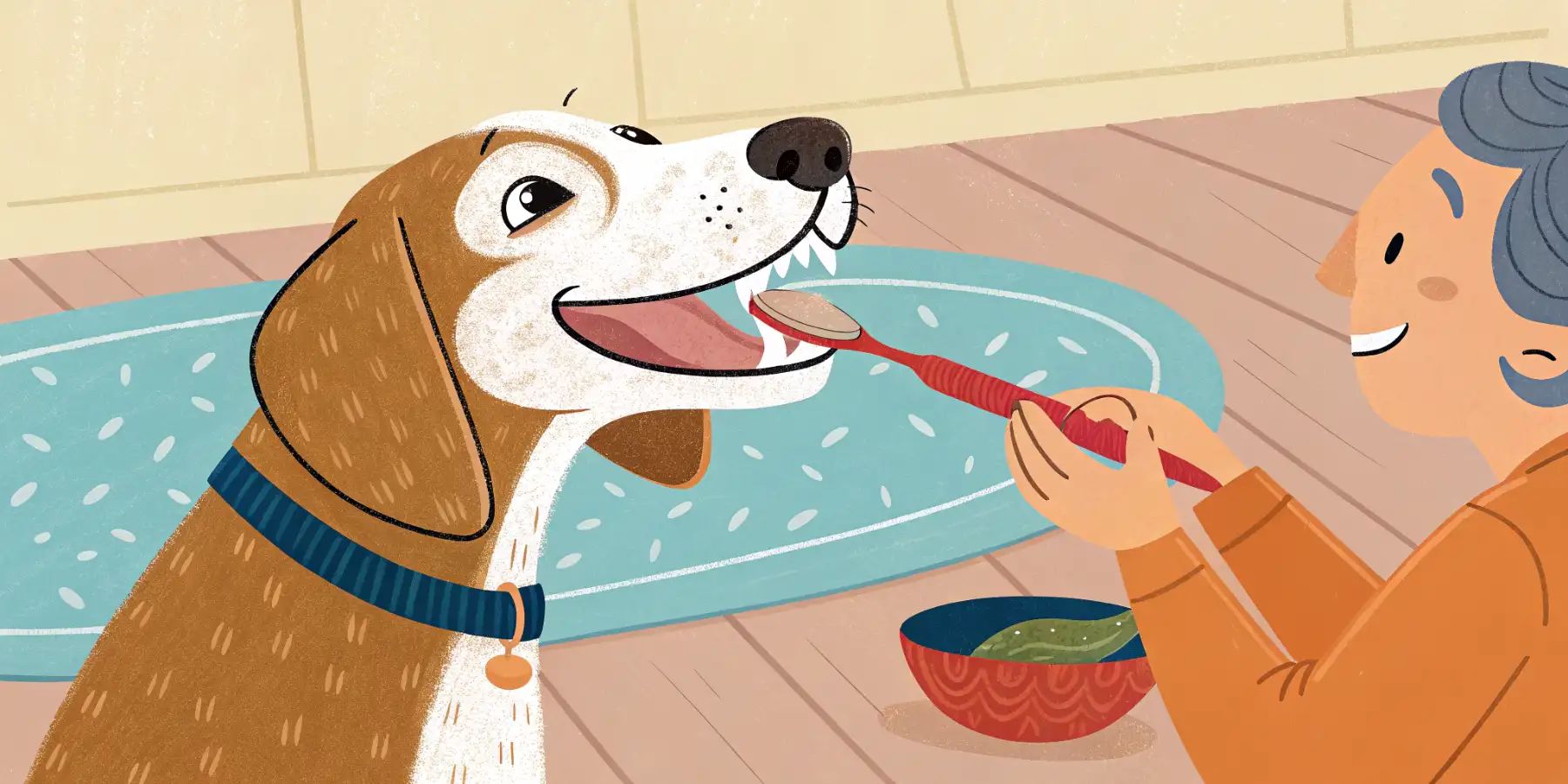 A patient owner gently brushes her senior dog’s teeth, fostering a positive association with dental care.
A patient owner gently brushes her senior dog’s teeth, fostering a positive association with dental care.
When to Consult Your Veterinarian
If you notice any of the following signs, it’s important to consult your veterinarian immediately:
- Bad breath
- Excessive drooling
- Difficulty chewing or eating
- Swollen or bleeding gums
- Loose or missing teeth
- Pawing at the mouth
- Changes in appetite or behavior
Conclusion: A Lifetime of Healthy Smiles
Dental care is a lifelong commitment, and it’s especially important for older dogs. By understanding the unique challenges they face and adapting your approach accordingly, you can help ensure they enjoy a healthy mouth, a pain-free life, and many more happy years by your side. Remember, proactive dental care for older dogs is an investment in their overall well-being. So grab that toothbrush, schedule that vet appointment, and give your senior dog the gift of a healthy smile!
